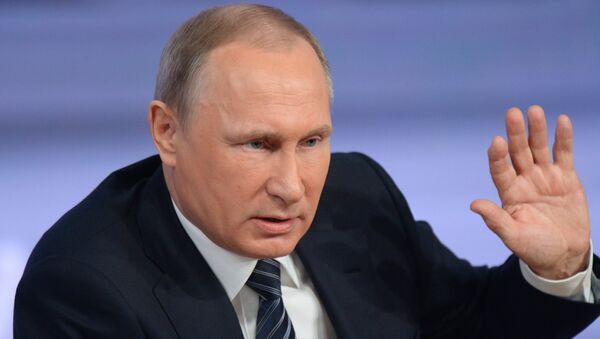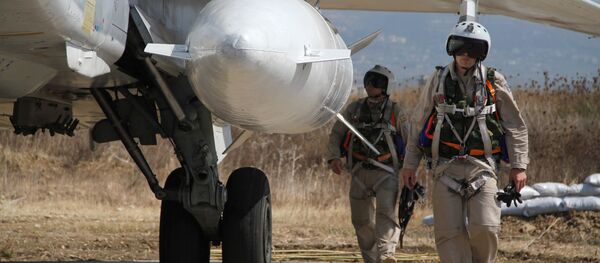"In regard to the coalition formed in Saudi Arabia… we do not believe this coalition will have some kind of anti-Russian character. In addition to the aforementioned countries, it will include Turkey, which we also don't consider to be a hostile state. It carried out a hostile act against our aircraft, but claiming that we consider Turkey a hostile state would be incorrect," Putin told reporters.
"I hope the created alliance will act in common interests, and that we will develop a common approach and rules, and establish effective joint action and effective instruments," the president added.
As proof, Putin cited several Russian-Saudi multibillion dollar military and technical cooperation projects underway. He noted regular high-level contacts maintained with Saudi leadership, including two meetings with Saudi King Salman over the past two months.
Russia’s Vedomosti daily cited industry sources as saying a number of contracts valued at up to $10 billion were prepared for the Saudi monarch’s latest visit in November. Saudi officials have reportedly expressed interest in the Iskander (SS-26 Stone) tactical missile systems.
Putin underscored at the annual press conference, however, that "instead of pulling apart the possibilities" collective efforts must be pooled together to effectively fight terrorism.
On Syria, Putin said Moscow and Riyadh saw the solution to the nearly five-year conflict differently, "but there are common approaches."
Saudi Arabia announced on Tuesday the creation of a 34-nation Islamic coalition, claimed to fight "terrorists" across the Middle East and Asia. Syria, where ground forces are engaged in the fight against militants and extremist fighters, as well as Shiite-majority Iraq and Iran are absent from the military alliance.
Saudi deputy crown prince and Defense Minister Mohammed bin Salman al Saud claimed the Riyadh-based coalition targets "any terrorist organization, not just Daesh, also known as ISIL/The Islamic State.
Saudi Arabia is a member of a US-led coalition of over 60 countries that has been conducting airstrikes against Daesh in Iraq and Syria since September 2014, without the approval of the Syrian government or the UN Security Council.
Syrian opposition groups met in Riyadh on December 10, forming a 32-member council tasked with choosing 15 delegates to represent the Syrian opposition at the talks with Damascus.
Government and opposition representatives are due to hold negotiations under UN auspices by January 1, 2016, as outlined by the International Syria Support Group (ISSG) of 20 countries in November.
Russia has been carrying out separate precision airstrikes against Daesh in Syria since September 30, at the request of President Bashar Assad.
Daesh is outlawed in Russia, as well as a range of other states.



